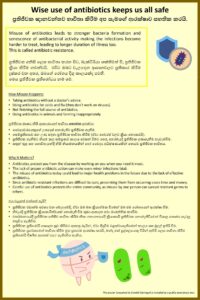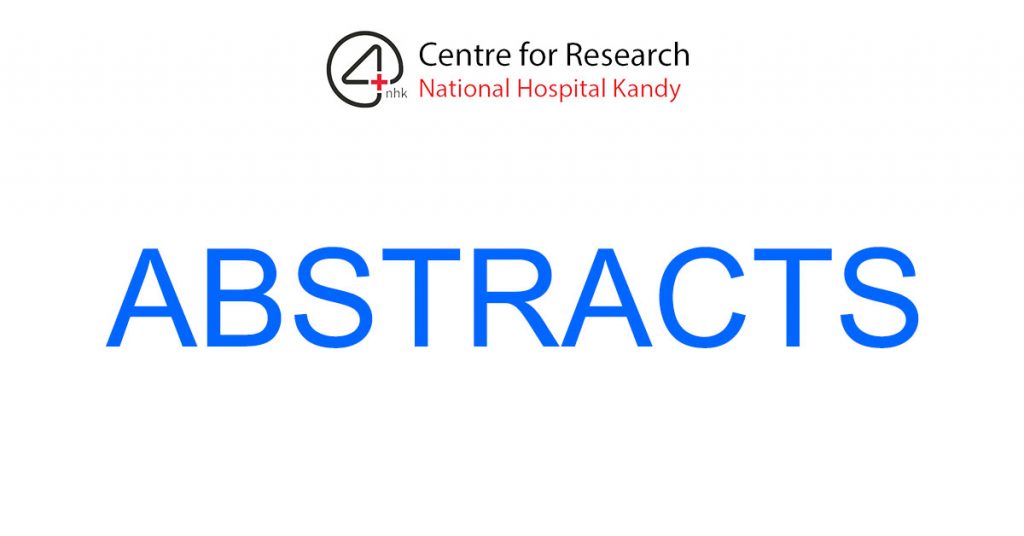Optimizing Antibiotic Stewardship and Reducing Antimicrobial Resistance in Central Asia: A Review and Adaptation Strategy for Sri Lanka

Figure 1
Antimicrobial resistance (AMR) is a major health crisis occurring globally, which reduces the effectiveness of medication during an infection. Due to the weak health system and poor regulations in low- and middle-income countries (LMICs) are more prone for antimicrobial resistance (AMR). A recent review titled “Barriers, facilitators, perceptions and impact of interventions in implementing antimicrobial stewardship programs in hospitals of low-middle and middle countries: a scoping review. Antimicrobial Resistance and Infection Control” discussed six core strategies for AMR stewardship. They are: evidence review, surveillance of antibiotic use, analysis of healthcare provider practices, strengthened policy and regulation, education and awareness, and a One Health approach (Harun et al., 2024).
Though the strategies are comprehensive, it is difficult to apply them in LMICs like Sri Lanka. Infrastructural barriers in LMICs, like inadequate laboratory facilities and limited diagnostic capacity, decrease the ability to identify resistant strains as well as to track the record of antibiotic use. Moreover, the lack of trained professionals and unawareness of the population also increases the challenge. (Harun et al., 2024). Behavioural and cultural factors should also be considered in LMICs. In these countries, patients are expecting speed recovery from antibiotics even in minor infections, and prescribers also have a fear of treatment failure, which ultimately contributes to inappropriate use (Parker et al., 2020).
According to previously conducted researches, targeted interventions can be effective. Hospital stewardship programmes for AMR reduce inappropriate prescribing. Follow up audits and feedbacks should always be collected to maintain the practice (Pauwels et al., 2025). Community campaigns can also improve public awareness of antibiotics, reducing self-medication (Massele et al., 2023). A public awareness poster has also been developed and attached to the article to covey the message to the general public (Figure 2). In Sri Lanka, even the pharmacy students have low knowledge of AMR, indicating the need of strong curriculum with stewardship principles at an early stage in their professional training (Sakeena et al., 2018).
Policy development is also very important. Even though high-income countries could handle this situation by strong governance, LMICs should follow sensitive policy method that addresses drug markets. Policies that combine regulation with education and community engagement could offer sustainable answers (Graells et al., 2023; Kakkar et al., 2020).
The health system in Sri Lanka provides universal coverage in treatment. It has demonstrated resilience in disease control, but still, antibiotic misuse is increasing. This could be occur due to factors, like: the easy access to antibiotics without prescription, overuse of antibiotics in hospitals, and widespread use of antibiotics in agriculture (Murray et al., 2023; Sakeena et al., 2018). To address these problems, it requires a national surveillance system for prescriptions, strong governance regulations of antibiotic sales and distribution, frequent and effective professional training, hospital stewardship programmes, and a One Health strategy that expands the stewardship to fields like agriculture and the environment too (Graells et al., 2023).
But there are some strengths in Sri Lanka too. Those include a well-established public health infrastructure and awareness campaigns, such as those for the prevention of dengue. But these should be improved in rural areas too. The limited diagnostic resources in secondary hospitals should be developed. It should ensure equitable access to essential antibiotics throughout the country (Harun et al., 2024).
In conclusion, the Central Asian protocol discussed by Harun et al., is a strong foundation for AMR control. Sri Lanka also has the opportunity to use the ideas and adapt the framework by strengthening surveillance, regulation, education, and cross-sectoral collaboration. With the robust healthcare system in Sri Lanka, it can emerge as a regional leader in AMR stewardship (Murray et al., 2023).
Reference:
Graells, T., others, 2023. Exploring the factors that contribute to the successful implementation of antimicrobial resistance interventions: a comparison of high-income and low-middle-income countries. Frontiers in Public Health 11.
Harun, Md.G.D., others, 2024. Barriers, facilitators, perceptions and impact of interventions in implementing antimicrobial stewardship programs in hospitals of low-middle and middle countries: a scoping review. Antimicrobial Resistance and Infection Control.
Kakkar, A.K., others, 2020. Antimicrobial Stewardship Programs in Resource Constrained Environments: Understanding and Addressing the Need of the Systems. Frontiers in Public Health 8, 140.
Massele, A., others, 2023. A Narrative Review of Recent Antibiotic Prescribing Practices in Ambulatory Care in Tanzania: Findings and Implications. Medicina 59, 2195.
Murray, J., others, 2023. Drivers of inappropriate use of antimicrobials in South Asia: A systematic review of qualitative literature. medRxiv.
Parker, H., others, 2020. Understanding surgical antimicrobial prescribing behaviour in the hospital setting: a systematic review and meta-ethnography protocol. Systematic Reviews 9.
Pauwels, I., others, 2025. Implementation of hospital antimicrobial stewardship programmes in low- and middle-income countries: a qualitative study from a multi-professional perspective in the Global-PPS network. Antimicrobial Resistance and Infection Control 14.
Sakeena, M.H.F., others, 2018. Investigating knowledge regarding antibiotics and antimicrobial resistance among pharmacy students in Sri Lankan universities. BMC Infectious Diseases 18, 312.

Figure 2


